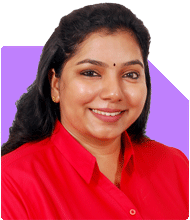42 Year Old with Family: Worried About Job Loss and Survival
Ramalingam Kalirajan |7838 Answers |Ask -Follow
Mutual Funds, Financial Planning Expert - Answered on Dec 03, 2024
He has an MBA in finance from the University of Madras and is a certified financial planner.
He is the director and chief financial planner at Holistic Investment, a Chennai-based firm that offers financial planning and wealth management advice.... more

I am 42 year old, living with my family , my wife and 2 kids of 7 year and 1 year. Monthly salary around 80k..monthly exp 60k.but my job is not stable and safe..having a fund corpus of 70 lakh and I have no loan and EMI...PF bal is around 5 lakh.can we survive if I unemployed ?suddenly..what should I plan for future considering I m unemployed..
Current Financial Overview
Monthly Salary: Rs 80,000
Monthly Expenses: Rs 60,000
Fund Corpus: Rs 70 lakh
PF Balance: Rs 5 lakh
Family: Wife and 2 kids (aged 7 and 1)
Job Security: Unstable
Immediate Steps to Ensure Financial Security
Create an Emergency Fund
Set aside at least 24 months of living expenses (Rs 15 lakh) in a safe, liquid fund.
Invest in liquid mutual funds or high-yield savings accounts for easy access.
Review and Reduce Expenses
Identify non-essential expenses and reduce them to increase savings.
Prioritise education, healthcare, and basic living expenses for your family.
Health and Life Insurance
Ensure adequate health insurance coverage for the family. Aim for Rs 15–20 lakh of coverage.
Buy term insurance with coverage of at least 15–20 times your annual income.
Build a Contingency Plan
Identify alternative income sources like freelancing, part-time work, or consulting.
Update your skills to improve employability in case of job loss.
Strategies for Your Corpus
Secure Investments
Keep Rs 15–20 lakh in safe instruments like FDs, PPF, or short-term debt funds.
These provide stability and liquidity during uncertain times.
Long-term Growth
Allocate Rs 30 lakh to equity mutual funds for long-term growth.
Choose diversified funds like large-cap or balanced advantage funds.
Education Planning
Start SIPs in mutual funds for your children’s education.
Target a dedicated education corpus by aligning with your children’s future needs.
Retirement Planning
Consolidate and continue building your PF balance.
Invest in NPS or equity mutual funds to secure retirement.
Job Loss Scenario: Survival Plan
Use the emergency fund to manage living expenses.
Avoid withdrawing from long-term investments unless absolutely necessary.
Explore short-term gig opportunities or a part-time job to maintain cash flow.
Action Plan for the Future
Regularly monitor and rebalance your portfolio with a Certified Financial Planner.
Build an additional income stream like tutoring, consulting, or passive investments.
Keep updating skills relevant to your industry to enhance job security.
Final Insights
With your current corpus and careful planning, you can survive a potential job loss. Focus on safeguarding your family’s future by building an emergency fund, securing insurance, and investing systematically. Regular reviews with a Certified Financial Planner will help align your goals and ensure financial stability.
Best Regards,
K. Ramalingam, MBA, CFP,
Chief Financial Planner
www.holisticinvestment.in
https://www.youtube.com/@HolisticInvestment
You may like to see similar questions and answers below
Anil Rego |384 Answers |Ask -Follow
Financial Planner - Answered on Mar 31, 2024
Ravi Mittal |520 Answers |Ask -Follow
Dating, Relationships Expert - Answered on Feb 05, 2025
Ramalingam Kalirajan |7838 Answers |Ask -Follow
Mutual Funds, Financial Planning Expert - Answered on Feb 05, 2025
Pushpa R |49 Answers |Ask -Follow
Yoga, Mindfulness Expert - Answered on Feb 05, 2025
Pushpa R |49 Answers |Ask -Follow
Yoga, Mindfulness Expert - Answered on Feb 05, 2025
Dr Nagarajan Jsk |231 Answers |Ask -Follow
NEET, Medical, Pharmacy Careers - Answered on Feb 05, 2025
Milind Vadjikar |974 Answers |Ask -Follow
Insurance, Stocks, MF, PF Expert - Answered on Feb 05, 2025
Ramalingam Kalirajan |7838 Answers |Ask -Follow
Mutual Funds, Financial Planning Expert - Answered on Feb 05, 2025
Ramalingam Kalirajan |7838 Answers |Ask -Follow
Mutual Funds, Financial Planning Expert - Answered on Feb 05, 2025
Ramalingam Kalirajan |7838 Answers |Ask -Follow
Mutual Funds, Financial Planning Expert - Answered on Feb 05, 2025
Ramalingam Kalirajan |7838 Answers |Ask -Follow
Mutual Funds, Financial Planning Expert - Answered on Feb 05, 2025
























